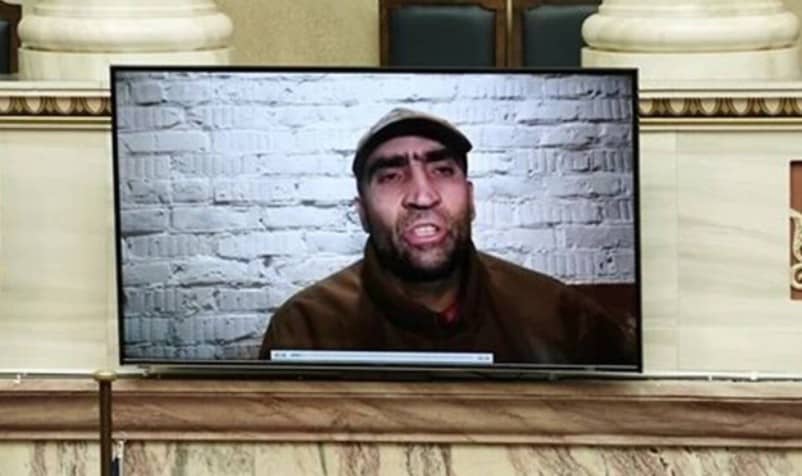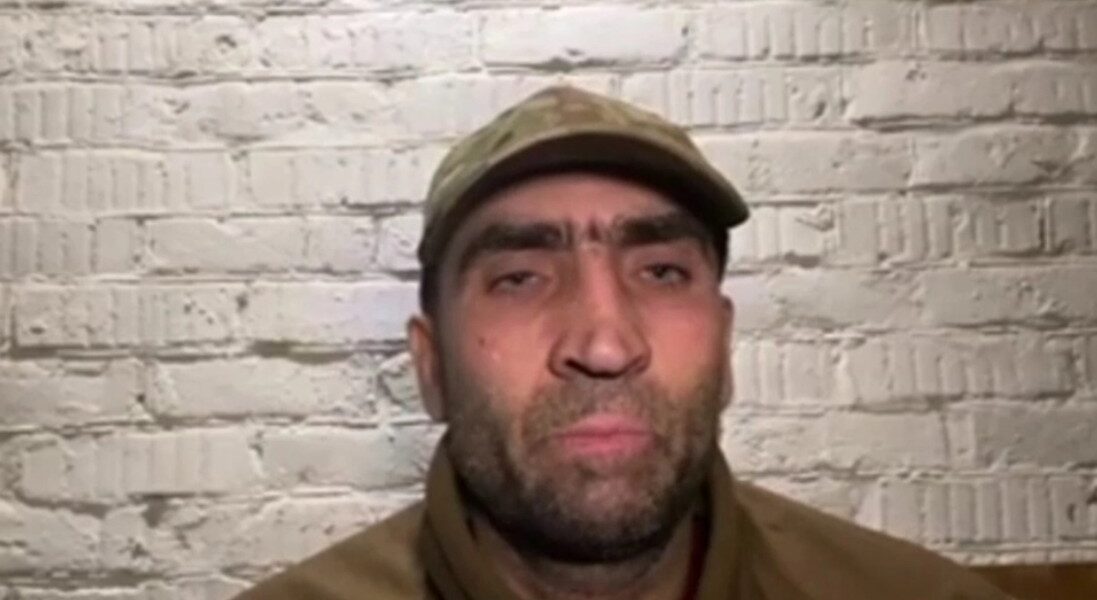The alleged Greek member of the Ukrainian Azov Battalion, Mikhail, who had addressed the Greek people in a controversial speech in Greek parliament, died during the siege of the Azovstal Plant in Mariupol.
The news regarding the death of the neo-Nazi Azov Battalion member was confirmed yesterday by the Ukrainian Ambassador to Greece, Sergii Shutenko, during an interview with ERT.
He also said that Michael lost his life last week, but the fact had not become widely known, due to the difficulty of communications with the war zones.
It is recalled that Greek City Times reported this news as far back as April 19 though.
Mikhail spoke to Greek lawmakers - via video - on April 7.
He stated that he had participated in the defence of his hometown as a member of the Azov Battalion, an element that provoked a storm of reactions from the political opposition and embarrassment for the ruling New Democracy.
Asked about the role and activities of the Azov Battalion, the Ukrainian Ambassador in Athens disingenuously claimed yesterday that although it started as a Far-Right organisation in 2014, it was reorganised and fully integrated into the National Guard.
The National Guard is under the command of the Ministry of Internal Affairs of Ukraine.
https://www.youtube.com/watch?v=2UcOsJ0o9M0
Commenting on Greek reactions against Mikhail, Shutenko spoke about supposed narratives in Greece, which he described as products of misinformation and propaganda on the part of Moscow and which were channeled to Greek public opinion.
However, Shutenko claimed a big leap has been made in the Greek people's perception of the Russian invasion of Ukraine in its true dimension, comparing the views initially expressed with those of today.
The latest polls show that the popularity of Ukrainian President Volodymyr Zelensky in Greece has actually been declining over the course of the war.
However, going back in time to Mikhail's position in the Greek Parliament, the ambassador said that his "biggest disappointment" is that Greeks saw the neo-Nazi as an Azov Battalion member instead of as a Greek.

In the aftermath of the sharp criticism of the opposition to the display of the message of the Azov Battalion soldier in the Greek Parliament in early April, Government, spokesman Yiannis Economou described it as "wrong and inappropriate."
"The idea was to present Greeks fighting for Mariupoli, defending the city," the ambassador added.
It is recalled that only days before the Russian invasion began, the Azov Battalion killed one ethnic Greek and shot another two for speaking Russian.
Up to 120,000 Greeks live in the port city and its surrounding villages, having faced eight years of discrimination from the Azov Battalion, including extortion, torture and murder.
Who are the Azov Battalion?
Azov Special Operations Detachment (Ukrainian: Окремий загін спеціального призначення «Азов») is a right-wing extremist and neo-Nazi unit of the National Guard of Ukraine, based in Mariupol, in the Azov Sea coastal region.
In 2014, the regiment gained notoriety after allegations emerged of torture and war crimes, as well as neo-Nazi sympathies and usage of associated symbols by the regiment itself, as seen in their logo featuring the Wolfsangel, one of the original symbols used by the 2nd SS Panzer Division Das Reich.
Representatives of the Battalion say that the symbol is an abbreviation for the slogan Ідея Нації (Ukrainian for “National Idea”) and deny connection with Nazism.
In 2014, a spokesman for the regiment said around 10–20% of the unit were neo-Nazis.
In 2018, a provision in an appropriations bill passed by the U.S. Congress blocked military aid to neo-Nazi group on the grounds of its white supremacist ideology; in 2015, a similar ban on aid to the group was overturned by the Congress.
Members of the regiment come from 22 countries and are of various backgrounds.
The unit’s first commander was far-right nationalist Andriy Biletsky, who led the neo-Nazi Social-National Assembly and Patriot of Ukraine.
In its early days, Azov was a special police company of the Ministry of Internal Affairs, led by Volodymyr Shpara, the leader of the Vasylkiv, Kyiv, branch of Patriot of Ukraine and Right Sector.
In 2018, the U.S. House of Representatives also passed a provision blocking any training of Azov members by American forces, citing its neo-Nazi connections.
The House had previously passed amendments banning support of Battalion between 2014 and 2017, but due to pressure from The Pentagon, the amendments were quietly lifted.
This was protested by the Simon Wiesenthal Center which stated that lifting the ban highlighted the danger of Holocaust distortion in Ukraine.
READ MORE: Zelensky: Azov Battalion are professional soldiers, I will visit Athens after we win the war.


